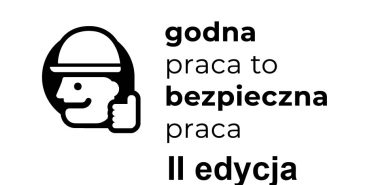How can mobbing be prevented?
Mobbing in the workplace is a topic that appears in public space from time to time. Employees are becoming more and more aware of their rights and know how to fight mobbing. Many employers also make every effort to prevent this from happening in their companies. However, you can never have too much education, especially since some employees, despite suspecting mobbing, hide it for fear of losing their job.
Mobbing is any action towards or against an employee that involves long-term and systematic harassment or intimidation. Mobbing results in lower assessment of professional suitability, exclusion from the team, humiliation and ridicule. A similar definition is included in the Polish Labor Code, which gives employees legal protection against mobbing. An important feature of mobbing is its systematic nature – a one-off incident in the form of negative behavior on the part of a superior does not constitute mobbing.
In the minds of employers and employees, mobbing is still limited to open verbal aggression. In fact, its definition is much broader and can manifest itself in many ways. The criteria for mobbing are met by, among others, behaviors such as:
- ignoring the employee,
- ridiculing an employee in private or in the presence of the team,
- assigning unnecessary tasks to an employee,
- threatening loss of job or reprimand,
- forcing the employee to work despite poor health,
- isolation of the employee from the team,
- systematically interrupting an employee’s speech.
Less direct and even quite subtle forms of mobbing have, in the long run, just as negative effects as verbal aggression. A victim of mobbing feels unappreciated, humiliated, and then loses faith in his or her own abilities. Very often, mobbing begins innocently with a single conflict, but inappropriate behavior on the part of the superior increases over time. A tense situation increases the level of stress in the employee and discourages him from coming to work every day, which is often associated with the fear of losing his job. This leads to passivity in the face of increasing mobbing.
The first step to combat mobbing is awareness of this phenomenon and the rights of the employee. A superior has no right to exceed the limits of mobbing. A person affected by mobbing may pursue his or her rights in court. This happens in two cases:
- after termination of employment due to mobbing,
- after a health disorder occurs in an employee affected by mobbing.
It is worth remembering that a superior will adopt a specific line of defense to avoid responsibility. Most often, it involves demonstrating the alleged unreliable performance of duties by the employee. The employee who pursues his rights in court is responsible for presenting evidence of mobbing. When planning protection against mobbing, it is worth ensuring that conversations with the superior take place in the presence of witnesses who will then be willing to confirm the accusations. E-mail correspondence with your supervisor is also important evidence in cases of mobbing in the workplace. Ultimately, you can also record the mobbing supervisor, but the court does not always accept evidence in this form. Medical documentation along with the course of treatment is necessary to prove a health disorder.
The best protection against mobbing is the appropriate selection of candidates for managerial positions. Appropriate knowledge possessed by the employer and management staff is also very important.
Source:https://www.seka.pl/mobbing_jak_zwalczac/

Supported by Norway through Norway Grants 2014-2021, in the frame of the Programme “Social Dialogue – Decent Work”.



